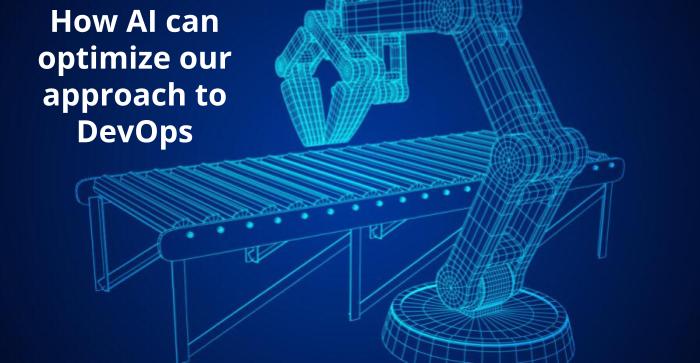
- Companies continue to invest heavily in the now tried-and-tested DevOps methodology
- But there’s plenty of room for improvement, and AI offers a solution across several components
The market valuation of DevOps will reach US$17 billion by 2026, as more and more businesses pile in on the methodology.
DevOps is aimed at unifying software development and operations to boost a company’s ability to deliver applications at high velocity. Its success is down to its tried-and-test ability to deliver benefits such as shorter development cycles, faster time to market, a higher rate of deployment efficiency, and ultimately, better products.
Red Hat’s chief agilist, Jen Krieger, previously told our sister site TechHQ that with all businesses essentially becoming tech companies, there’s no reason why most businesses shouldn’t be considering embracing the approach.
DevOps is about the correlation of people, processes, and products to enable continuous delivery of value to end-users, and while it adds automation and consistency to operations, there is still the need for manual, repeatable processes — and that means there’s space for artificial intelligence (AI) technologies to enhance that efficiency further, enabling the people to take on more targeted innovation.
Also Read: What makes great DevOps teams tick
Companies can resort to AI data mapping techniques to accelerate data transformation processes. At the same time, machine learning (ML) used in data mapping will also automate data integrations, allowing businesses to extract business intelligence and drive important business decisions quickly.
Taking it a step further, organizations can push for AI/ML-powered DevOps for self-healing and self-managing processes, preventing abrupt disruptions and script breaks. Besides that, organizations can opt for AI to recommend solutions to write more efficient and resilient code, based on the analysis of past application builds and performance.
The ability of AI and ML to scan through troves of data with higher precision will play an essential role in delivering better security. Through a centralized logging architecture, employees can detect and highlight any suspicious activities on the network. With the help of AI, organizations can track and learn of the hacker’s motive in trying to breach a system. This capability will help DevOps teams to navigate through existing threats and mitigate the impact.
Communication is also a vital component in DevOps strategy, but it’s often one of the biggest challenges when organizations move to the methodology when so much information is flowing through the system. Using AI-powered technology like chatbots, certain comms channels can become more streamlined and proactive.
Most importantly, DevOps backed with AI/ML technologies will deliver better customer experience. Interestingly, just like how AI/ML technologies can root out security threats in a network and provide a holistic view, the same ability can be applied to improving user experience. AI and ML can inspect user behavior in identifying the type of application modules and functions responsible for the heavy lifting. This knowledge will, in turn, guide the DevOps team to focus on areas essential for user experience, working on the core elements that will have a maximum impact upon a new version or release.
The integration of AI/ML technologies opens up new streams and enhanced functions in DevOps processes but also, development and operations teams will be equipped with state-of-the-art resources and be at the forefront of innovation.
Disclaimer- This article was originally published on https://techwireasia.com/
BDCC
Latest posts by BDCC (see all)
- Four Steps to Balance Agility and Security in DevSecOps - April 22, 2025
- Enhancing Security Posture with Azure’s AI-Driven Threat Detection - April 15, 2025
- Why Golang is Becoming the Go-To Language for DevOps Engineers - April 11, 2025

